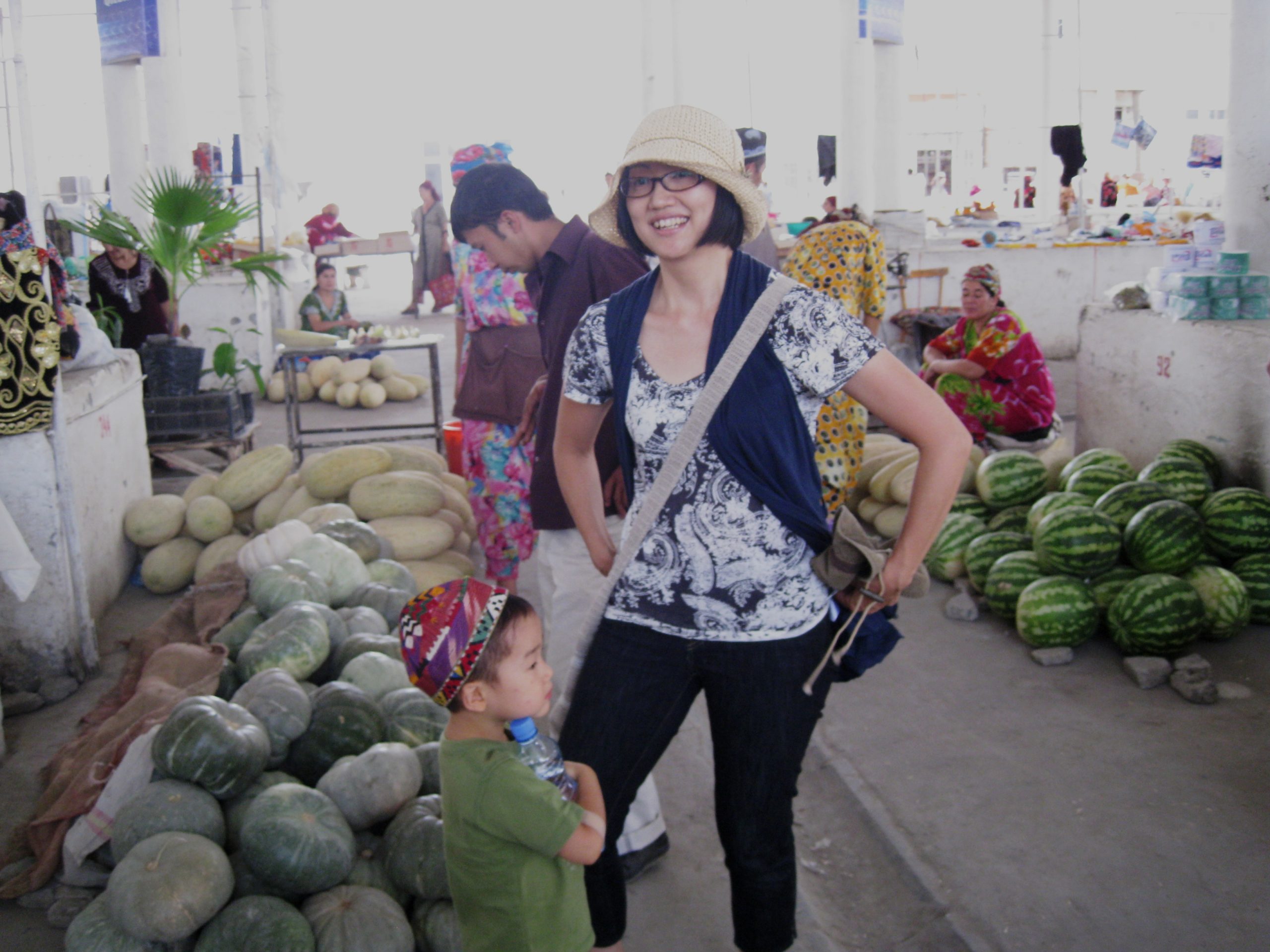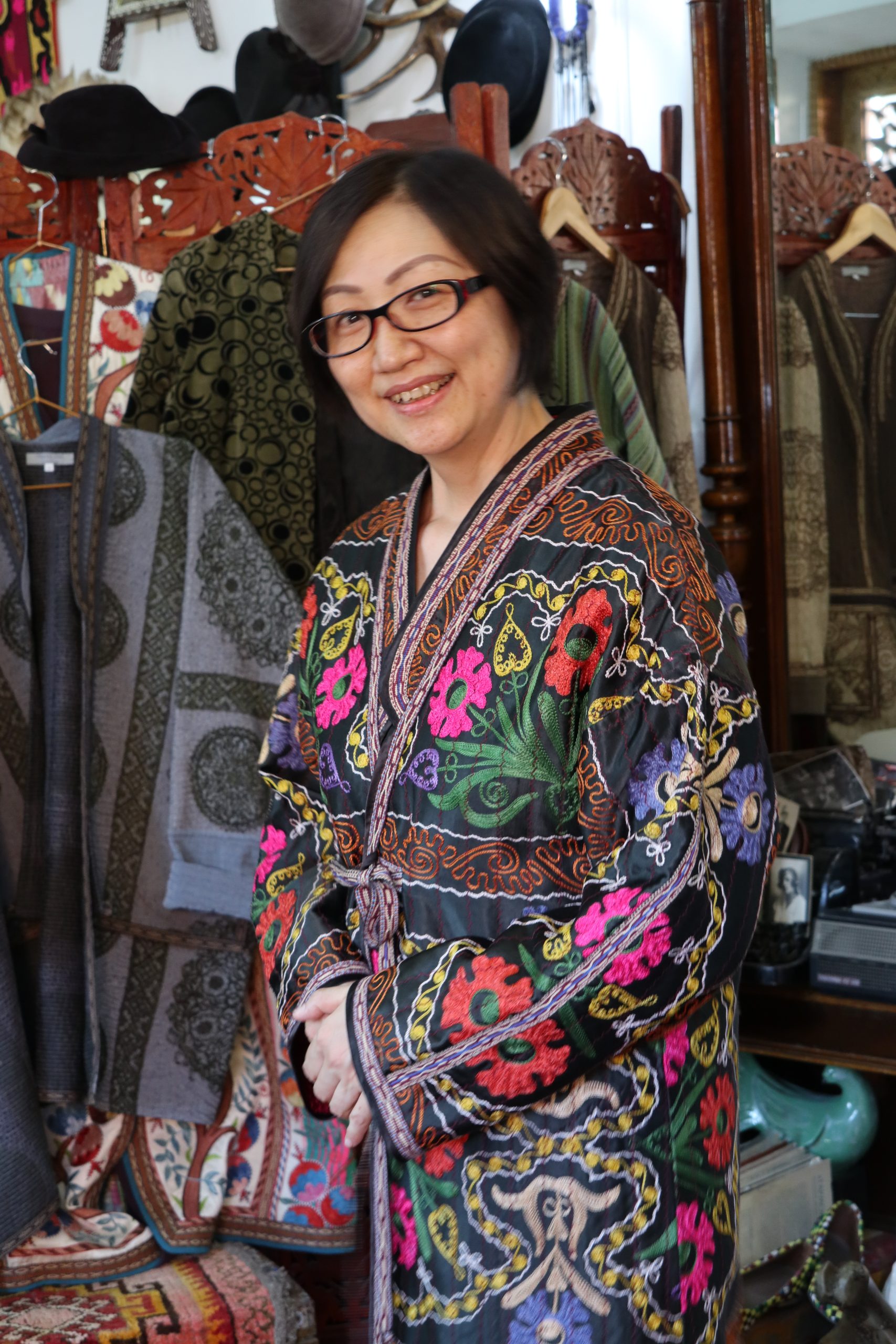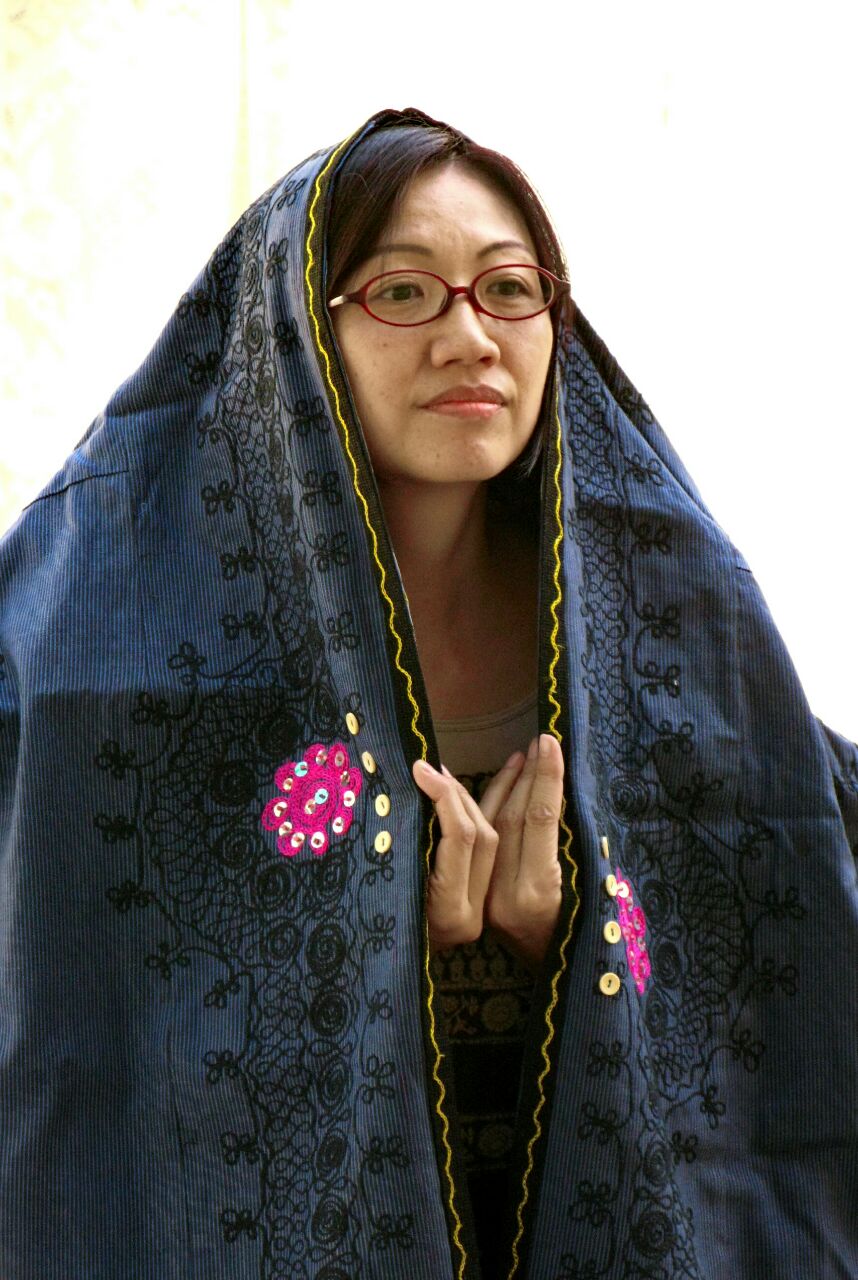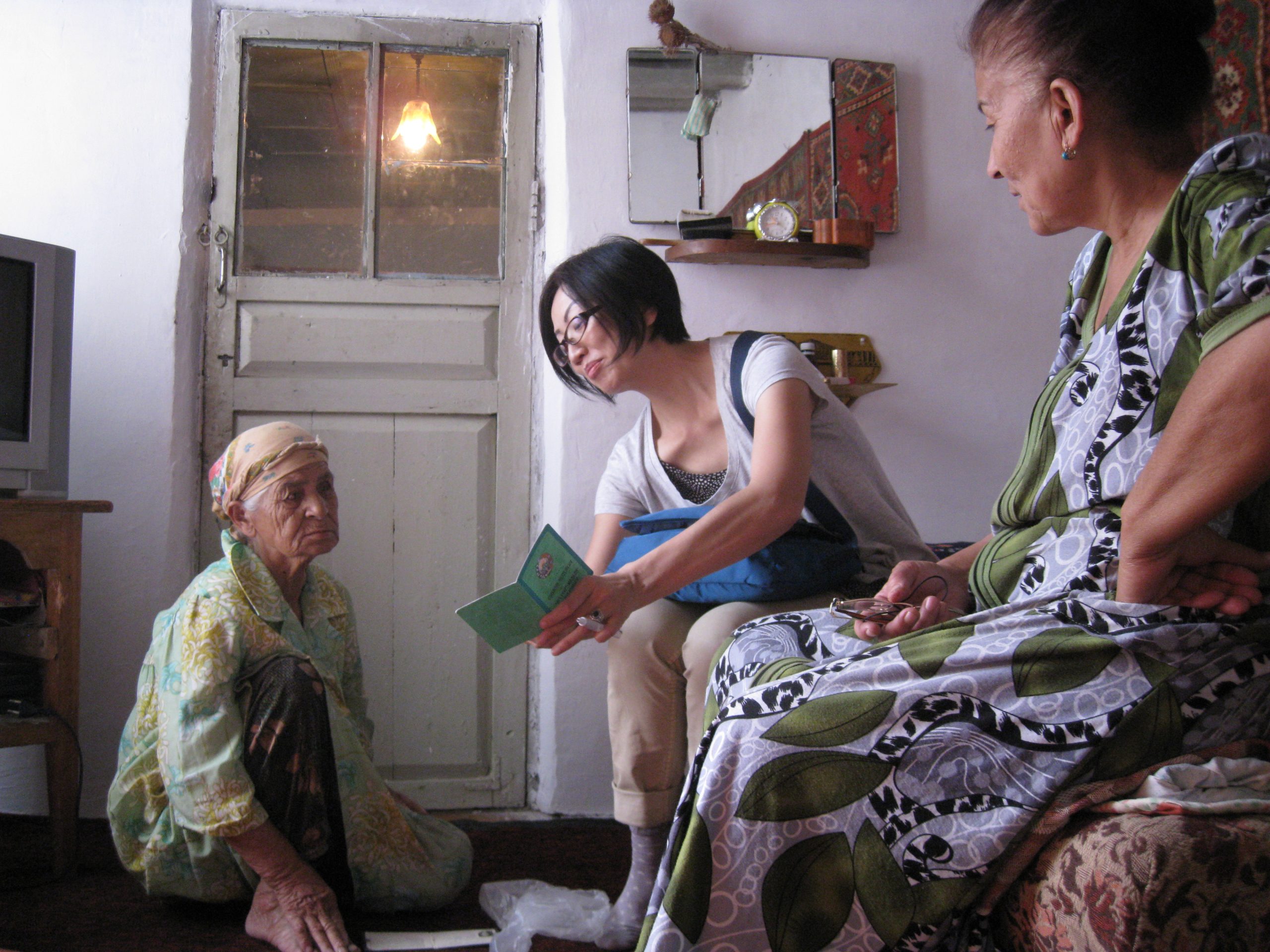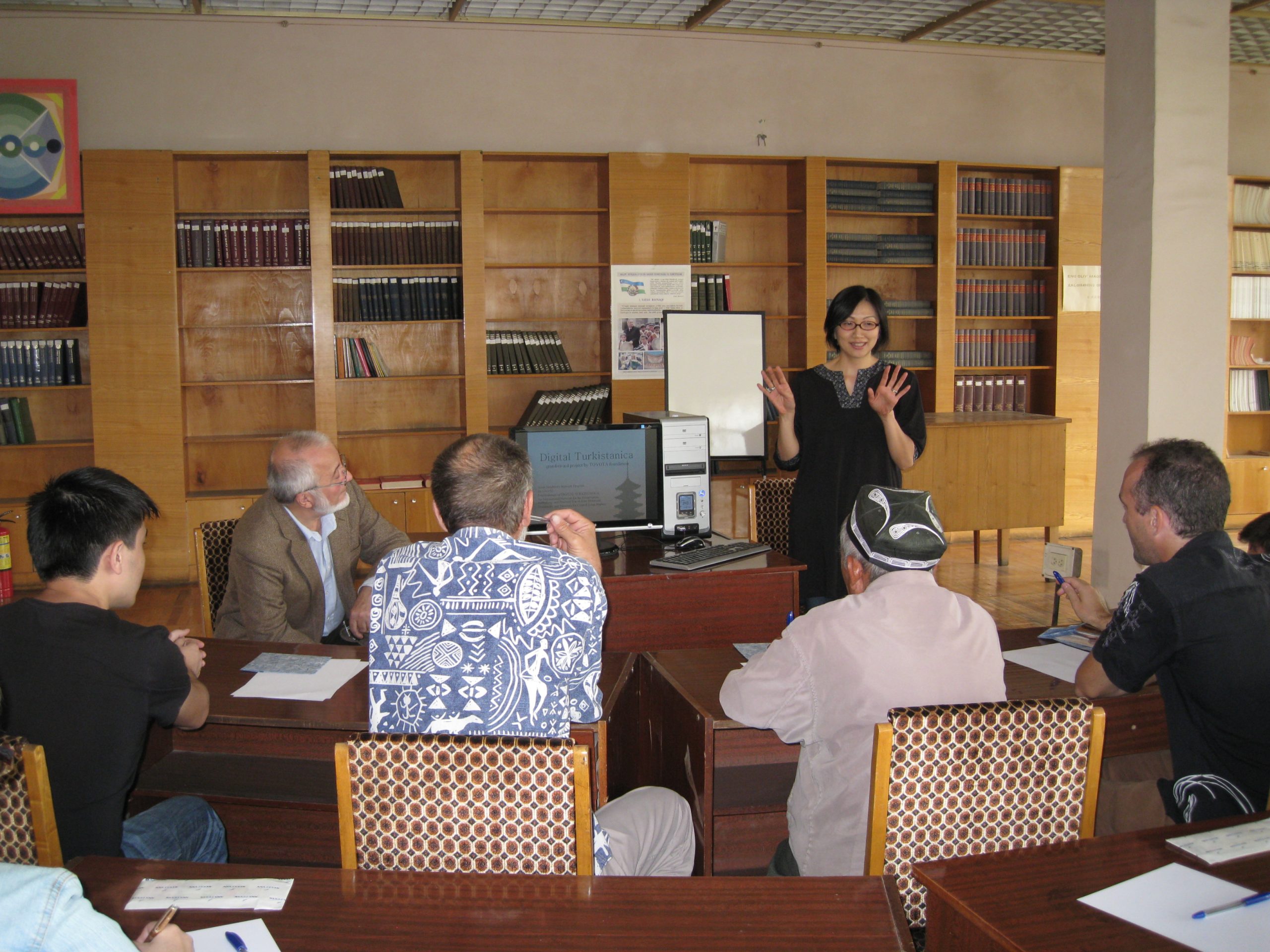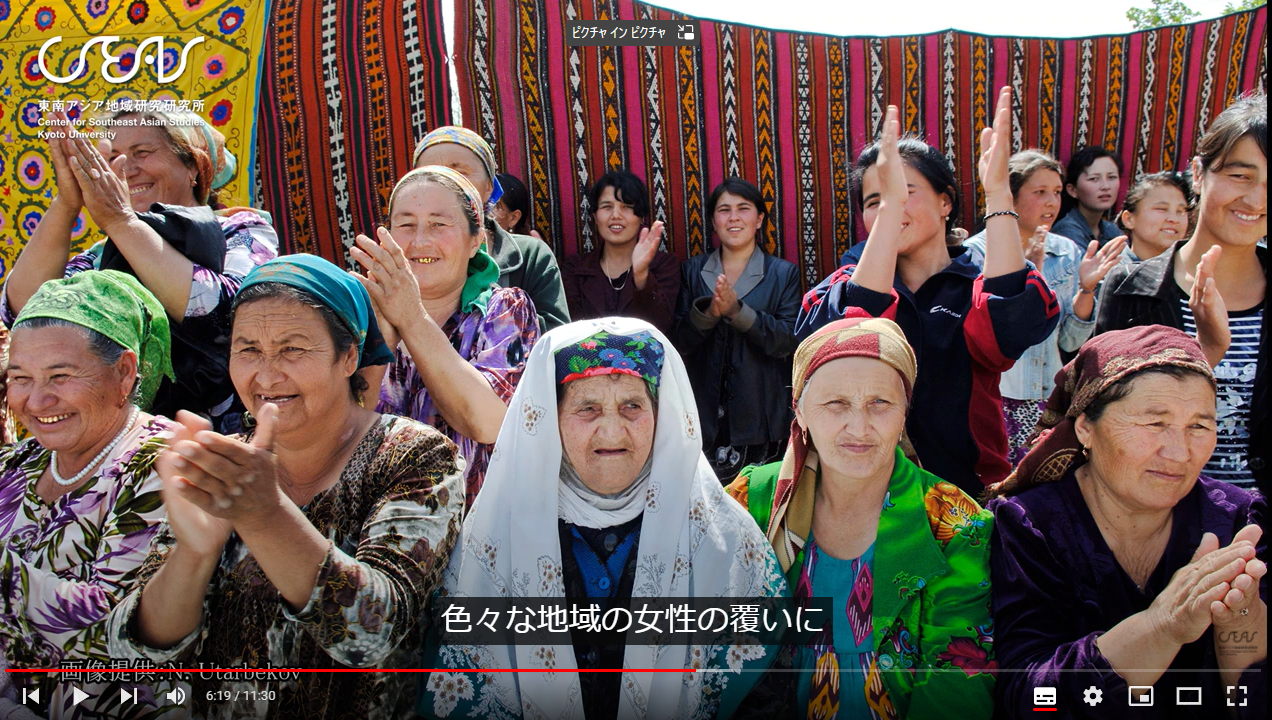Play YouTube, select English subtitles from settings (gear icon)
Uzbekistan is one of several former Soviet Union countries in Central Asia that gained independence in 1991. Uzbek culture has its foundations in Islam, but the country experienced rigorous secularization under the socialist system during the 20th century. Though Islamic revivalism has been evident since the liberalization (Perestroika) reform at the end of the Soviet regime, secularism remains a national creed even now.
In 2009, I saw many Uzbek women who were wearing a headscarf in the Islamic fashion (called hijob in Uzbek). This was the first time I had seen this in almost 20 years of my fieldwork in Uzbekistan, and it prompted me to think about veils, their backgrounds and contemporary contexts.
My understanding is that it should not be regarded as regressive for these Uzbek women to be wearing the veil, but rather as a new phenomenon that is emerging as they start to make their own lifestyle choices. Those women were questioning the idea that “liberated,” “progressive” women do not cover themselves with a veil. This is an idea that was trumpeted and popularized, along with western fashion, by the campaign against the veil by the Soviets in the 20th century.
However, the Uzbek authorities, who viewed the hijob movement as a threat to secularism, as well as fearing Islamic extremism, began to take control. This led to a series of detentions of hijob wearers and sellers at bazaars in 2015. This policy has since been reviewed in consideration of religious freedom after the sudden death of the former president, and the ban was lifted in 2021. I regard this as a big turning point for Uzbekistan, a shift from being a society of invisible to visible Islam.
The banning of the veil based on the principle of secularism is a common point of debate in the so-called “veil controversy” or “scarf controversy” that has been seen in the cases of France, Canada, Turkey etc. As such, some Western liberal and democratic countries enforce laws to ban the wearing of veils in public. This debate is, in a sense, questioning the way in which diverse people ought to coexist in the contemporary world.
As this movie was created during the ongoing pandemic of COVID-19, we are very sorry that we could not show the lives of the people in Uzbekistan today. Instead, we have included here some segments from our workshop “Veils: Diversity, Meaning, and Individuality,” where young researchers, graduate students, and students from Islamic countries gathered and exchanged views and experiences.
